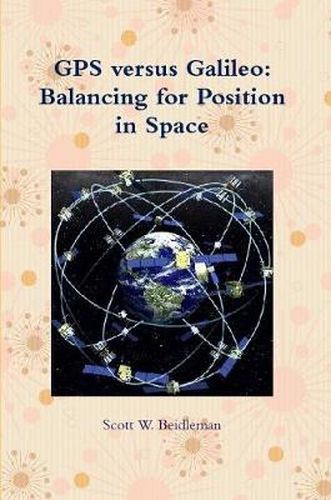Readings Newsletter
Become a Readings Member to make your shopping experience even easier.
Sign in or sign up for free!
You’re not far away from qualifying for FREE standard shipping within Australia
You’ve qualified for FREE standard shipping within Australia
The cart is loading…






This title is printed to order. This book may have been self-published. If so, we cannot guarantee the quality of the content. In the main most books will have gone through the editing process however some may not. We therefore suggest that you be aware of this before ordering this book. If in doubt check either the author or publisher’s details as we are unable to accept any returns unless they are faulty. Please contact us if you have any questions.
This study investigates Europe's motives to develop the independent satellite navigation system known as Galileo despite the existence of America's successful global positioning system (GPS). The author contends that Europe's pursuit of Galileo is driven by a combination of reasons, including performance, independence, and economic incentive. With Galileo, Europe hopes to achieve political, security, and technological independence from the United States. Additionally, Europe envisions overcoming the US monopoly on GNSS by seizing a sizable share of the expanding GNSS market and setting a new world standard for satellite navigation. Finally, the author explores Galileo's impact on the United States and reviews US policy towards Galileo. The study concludes with recommendations to strengthen the competitiveness of GPS. (Originally published by Air University Press)
$9.00 standard shipping within Australia
FREE standard shipping within Australia for orders over $100.00
Express & International shipping calculated at checkout
This title is printed to order. This book may have been self-published. If so, we cannot guarantee the quality of the content. In the main most books will have gone through the editing process however some may not. We therefore suggest that you be aware of this before ordering this book. If in doubt check either the author or publisher’s details as we are unable to accept any returns unless they are faulty. Please contact us if you have any questions.
This study investigates Europe's motives to develop the independent satellite navigation system known as Galileo despite the existence of America's successful global positioning system (GPS). The author contends that Europe's pursuit of Galileo is driven by a combination of reasons, including performance, independence, and economic incentive. With Galileo, Europe hopes to achieve political, security, and technological independence from the United States. Additionally, Europe envisions overcoming the US monopoly on GNSS by seizing a sizable share of the expanding GNSS market and setting a new world standard for satellite navigation. Finally, the author explores Galileo's impact on the United States and reviews US policy towards Galileo. The study concludes with recommendations to strengthen the competitiveness of GPS. (Originally published by Air University Press)